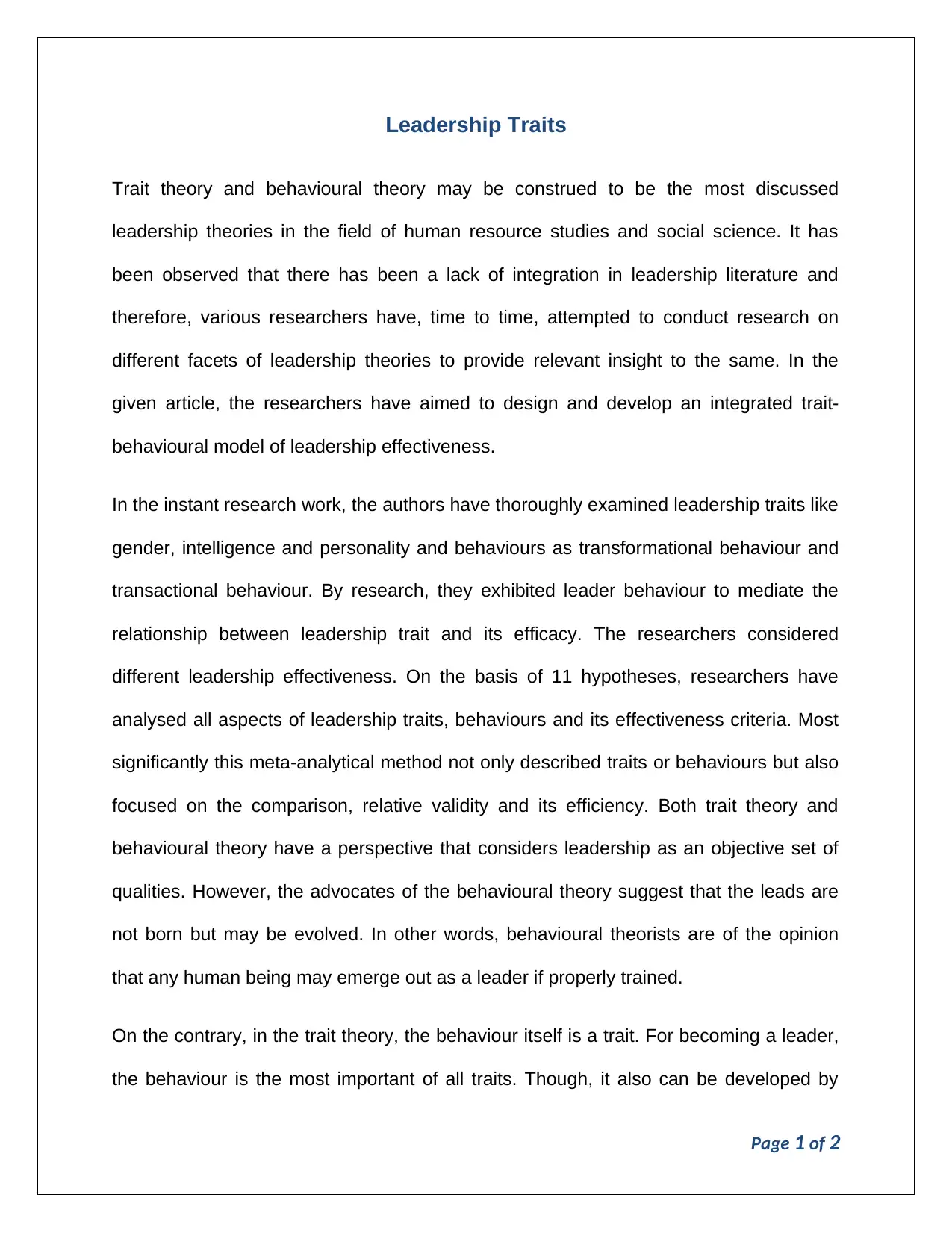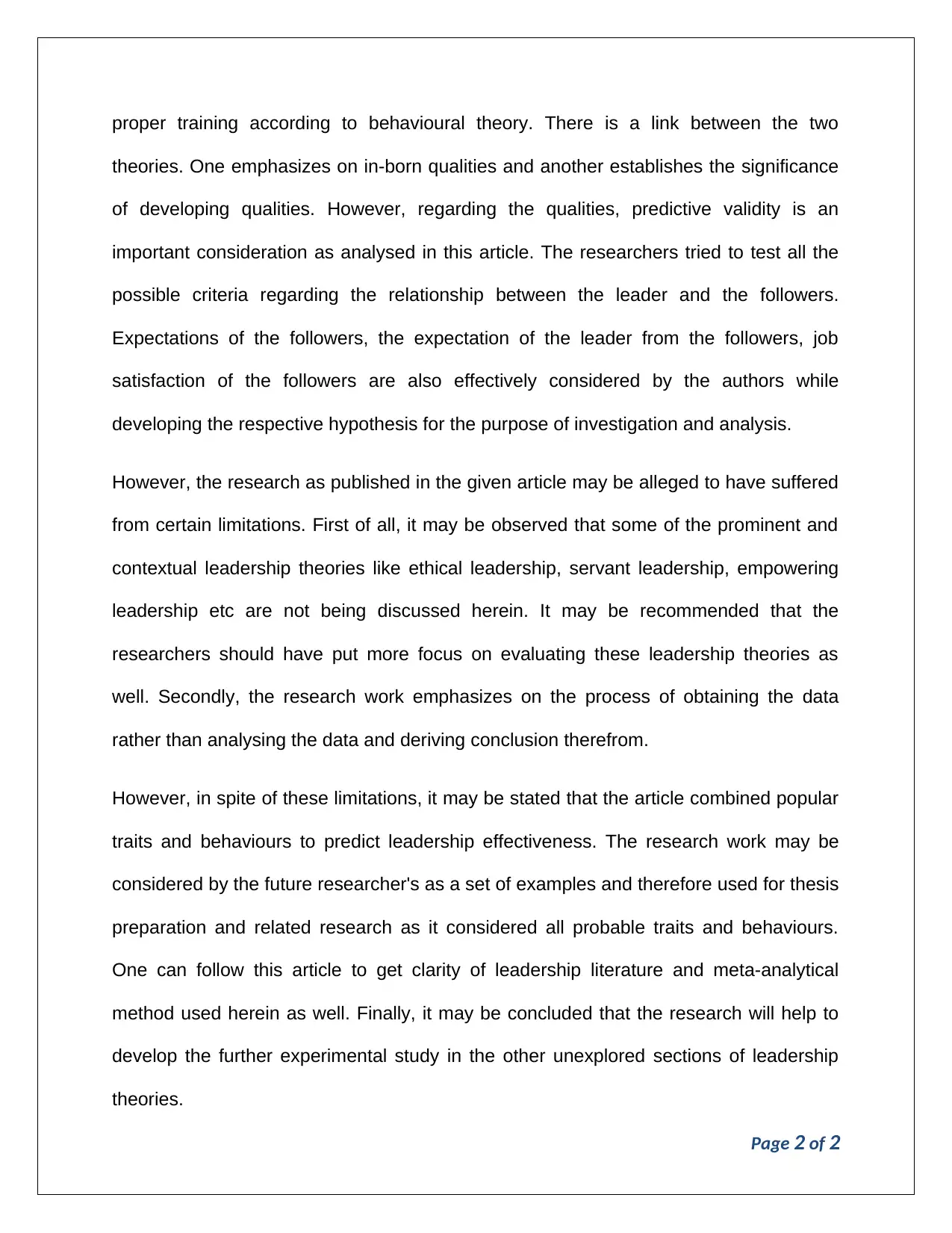Report on Leadership Theories: Trait, Behavior, and Research Analysis
VerifiedAdded on 2022/12/30
|2
|608
|1
Report
AI Summary
This report analyzes leadership theories, specifically focusing on trait and behavioral approaches, and their relationship to leadership effectiveness. The report examines the integration of trait-behavioral models, considering factors like gender, intelligence, and personality, alongside transformational and transactional behaviors. It explores how leadership behaviors mediate the connection between traits and outcomes. The study utilizes meta-analytical methods to assess the validity and efficiency of these theories. The report also contrasts trait theory, which emphasizes innate qualities, with behavioral theory, which suggests leadership can be developed. It highlights the importance of predictive validity in these theories and discusses the expectations of leaders and followers, including job satisfaction. The report acknowledges limitations such as the exclusion of other leadership theories and the emphasis on data collection over in-depth analysis, yet it concludes that the research provides valuable insights for future studies and thesis preparation, offering clarity on leadership literature and meta-analytical methods.
1 out of 2








![[object Object]](/_next/static/media/star-bottom.7253800d.svg)